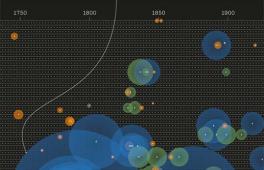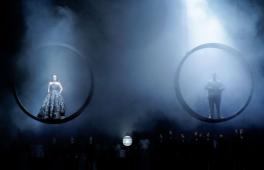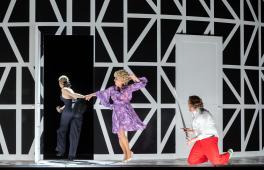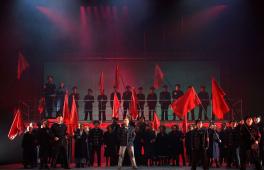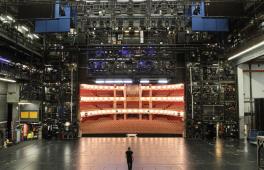The list of operas with the highest number of performances documents which works are particularly established in the repertoires of theatres in Germany. Whereas the 2020-21 season analysis showed which works could have been performed at all for several times in front of an audience, conditions for the 2021-22 season were characterised by increasingly relaxed coronavirus protection measures. Audience numbers in 2021-22 remained below the pre-pandemic figures due to ongoing restrictions, but peformance figures stabilised.
With 245 performances, ‘The Magic Flute’ by Wolfgang Amadeus Mozart once again tops the list of the most performed operas. The 21 productions of the work that were staged as an opera were attended around 105,000 times. Engelbert Humperdinck's opera ‘Hansel and Gretel’ – the second most performed opera in Germany – was staged 142 times in the 2021-22 season after a dramatic slump during the pandemic (2020-21: only three performances in front of a total of 756 visitors). Humperdinck's fairytale opera recorded almost 66,000 attendances in 2021-22. Bizet's ‘Carmen’ reached 150 performances, the highest number since 2016-17.
The list of the most frequently performed operas in 2021-22 consists almost exclusively of works that were frequently performed in Germany before the pandemic. Benjamin Britten's ‘A Midsummer Night's Dream’ is more of an exception here, even if all of the composer's works have quite high performance numbers overall.
In its nature of a top 20 ranking list, this list cannot capture the breadth of the opera repertoire in Germany.
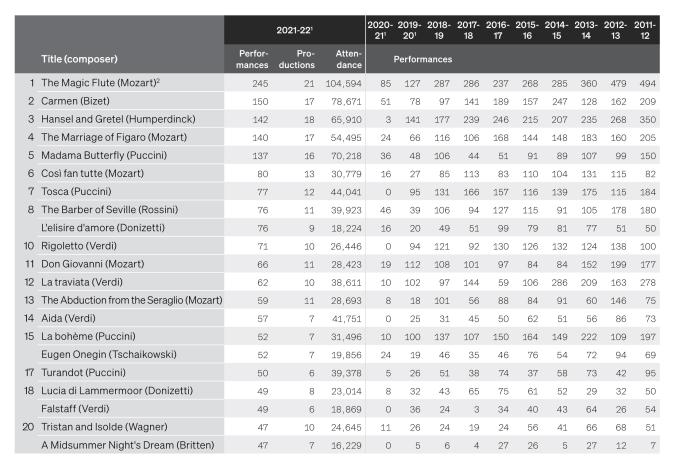
Note
The work statistics are drawn from a complete survey based on online questionnaires (written questionnaires until 2013-14) submitted to all state, municipal and regional theatres and major private theatres in the German-speaking countries. Also included are festivals with theatre productions and training institutions where productions reach public performance under professional supervision. The figures cover the theatre’s entire repertoire (own and co-productions), including concert performance and guest appearances at other theatres, but with no claim to completeness; guest appearances by outside ensembles at the theatre’s own premises are excluded. As many theatres report number of performances but not attendance, gaps in the presentation may occur.
The 2014-15 statistics were accompanied by a revision of the classification system to take into account the diversity of work manifestations in different theatre formats. Since then, the decisive factor is no longer a predefined classification of a work into the three main categories of musical theatre (opera, operetta, musical), drama and ballet/dance, but the decision of the theatres as to how a production positions itself as a work. For this purpose, the classification system was expanded: since 2014-15, children‘s and adolescent‘s theatre, puppet theatre, revue/Liederabend and multi-genre projects/performances have been listed on an equal footing with the main categories. Operas or opera adaptations that are assigned to these categories are not included in these statistics. This also applies to productions that fall under the category Digital Theatre, which has been introduced in the 2019-20 season. Digital theatre includes both genuinely digital productions and stage productions, which are streamed live or posted online as recordings.
Footnotes
-
Due to the COVID-19 pandemic since March 2020, theatre operations were restricted. This is reflected in the season‘s statistics.
-
Unlike previous editions of the statistics, beginning in the 2014-15 season only performances of original versions are taken into account. In consequence, the number of performances of Mozart’s Magic Flute has sharply declined compared to previous years, the reason being that it is frequently mounted in versions for children and adolescents or in other adaptations.
Source information
Compiled by the German Music Information Centre from various issues of Wer spielte was? Werkstatistik, published annually by the German Theatre and Orchestra Association (Deutscher Bühnenverein).




